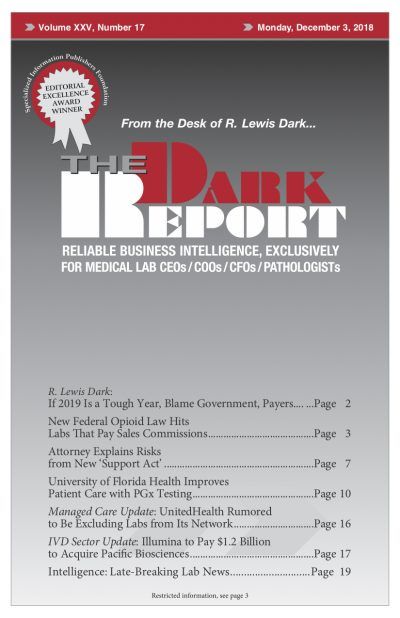CEO SUMMARY: Legislation signed into law on Oct. 24 was designed to stem the nation’s opioid crisis. But in addition to applying to sober homes and addiction treatment centers, the law also applies to clinical laboratories. Called the ‘Support for Patients and Communities Act,’ the law could authorize criminal penalties for labs that pay sales …
Attorney Explains Risks from New ‘Support Act’ Read More »
To access this post, you must purchase The Dark Report.


